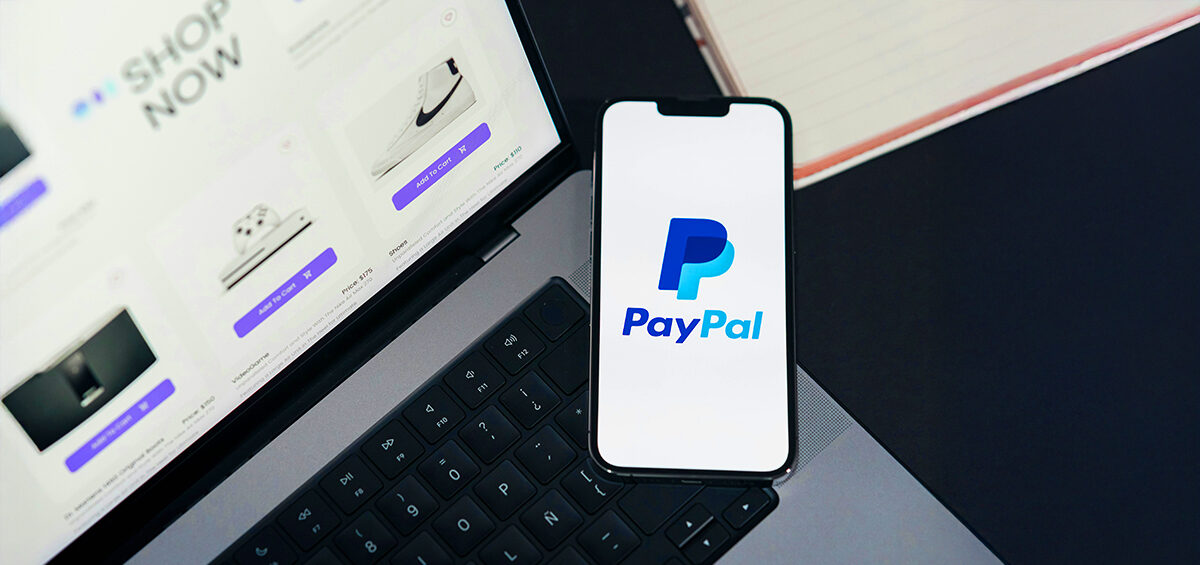Online scams are on the rise, affecting people from all walks of life. Whether you’re sending money to a friend, shopping online, or running a business, platforms like PayPal make digital transactions fast and easy. Sadly though, they can also make it easier for scammers to target innocent people.
According to UK Finance Fraud Report 2025, over £450 million was lost to APP fraud in 2024 alone. This concerning figure is a reminder of just how widespread online scams have become. Scammers often use fake invoices, phishing emails, and fraudulent transactions to deceive users. The financial and emotional toll of being scammed can be devastating, which is why it’s vital to understand your protections when using PayPal.
In this article, we’ll explain how PayPal scams work, whether PayPal refunds money if you’ve been scammed, and what you can do to protect yourself.
How Do Scams on PayPal Work?
Fraud and scams on PayPal typically involve fraudsters impersonating legitimate users or businesses.
The main types of PayPal scams include:
- Phishing emails – directing users to fake login pages to steal your login details
- Account takeovers – where scammers access your PayPal account and drain your balance
- Fraudulent purchases – where scammers make unauthorised transactions using your account
- Fake payment notifications – emails or texts that trick you into believing you’ve been paid
PayPal does offer some protection to its users, but that doesn’t mean it’s risk-free. Understanding the most common scams can help you avoid falling victim in the first place.
Common PayPal Scams to Be Aware Of
As PayPal grows in popularity, scammers constantly devise new ways to trick users. Here are the most frequent PayPal scams:
Phishing Scams via Email or Text
Phishing scams are one of the most common ways fraudsters get into PayPal accounts. They send fake emails or texts that look like they’re from PayPal, often claiming there’s an issue with your account or that you’ve received a payment. These messages usually contain a link to a fake login page designed to steal your security information.
Learn more in our guide on Phishing, Vishing and Smishing scams.
Account Takeovers
If a fraudster gets access to your PayPal login details, whether through phishing or leaked information, they can take over your account, change your settings, make purchases and send money to themselves. This is why using strong, unique passwords and two-factor authentication is essential.
Fake Seller or Buyer Scams
Some scammers set up fake accounts, pretending to be real buyers or sellers. One common trick involves overpaying for an item and then asking for a refund of the difference. The original payment never clears, leaving the victim out of pocket.
Chargeback Scams
In a chargeback scam, a fraudster makes a legitimate purchase through PayPal, but once they receive the item, they contact their bank to reverse the payment, falsely claiming the transaction was unauthorised and / or they never got what they paid for. This leaves the seller out of pocket and without their product.
For real-life examples of PayPal scams and how they impact users, check out this guide from Norton which breaks down common tactics used by scammers.
Does PayPal Refund Scammed Money?
PayPal Buyer and Seller Protection
PayPal offers Buyer Protection and Seller Protection schemes designed to keep users safe. If you didn’t receive an item you paid for, or it arrived significantly different from the description, you may be entitled to a refund under Buyer Protection.
If you’re a seller and a buyer falsely claims they never received an item, Seller Protection can help cover your losses, but only if you followed all the correct procedures and provided proof of shipment.
When Does PayPal Not Refund Money?
There are situations where PayPal may not refund your money, such as:
- Payments made via the “Friends and Family” option (not covered by Buyer Protection)
- Late reports (you must report unauthorised transactions within 60 days)
- Scams involving intangible items, digital goods, or cryptocurrency
- Insufficient evidence provided when disputing the transaction
How to Dispute a Transaction on PayPal
If you believe you’ve been scammed on PayPal, you need to act fast. Here’s what to do:
1. Log in to your PayPal account
2. Go to the Resolution Centre
3. Click ‘Report a Problem’
4. Choose the transaction and follow the steps to file a dispute
You’ll need to provide any evidence you have, such as screenshots, email conversations, and receipts. If the issue isn’t resolved within 20 days, you can escalate the dispute to a claim for PayPal to investigate.
How to Protect Yourself from PayPal Scams
While PayPal does offer some protection, it’s always better to stay one step ahead. Here are a few easy ways to lower your risk of being scammed:
Enable Two-Factor Authentication
Two-factor authentication (2FA) adds an extra layer of security. It means even if someone has your password, they can’t access your account without your phone or verification device.
Be Wary of Suspicious Emails or Links
Always double-check the sender’s email address. If a message looks odd, don’t click on any links – go directly to the PayPal website and log in securely.
Monitor Your Account Regularly
Make it a habit to check your PayPal activity for unusual activity. If you spot something suspicious, report it right away here.
Use Strong Passwords
Avoid using the same password for multiple accounts. A strong password should include a mix of letters, numbers, and symbols. A password manager can help you keep track of and store your passwords safely.
What to Do if You’ve Been Scammed on PayPal
If you’ve already lost money, don’t panic. You still have options:
1. Contact PayPal customer service and report the scam.
2. File a dispute or claim for unauthorised transactions through PayPal’s Resolution Centre.
3. Check if the payment qualifies for PayPal’s Buyer Protection policy.
4. Document all communication with the scammer for evidence.
5. Monitor the account for further suspicious activity.
For more detailed steps, visit our guide: How to Get Back Scammed Money
Protect Yourself with CEL Solicitors
Have you fallen victim to a PayPal scam? Don’t worry. Our experienced legal team at CEL Solicitors has helped countless individuals recover funds lost to scams.
There is nothing to pay nothing upfront. We only take a fee once your case is successful, and you have received your money. You are not to blame for being scammed, and you don’t have to fight this alone.
Contact CEL Solicitors today for expert advice on recovering your funds and protecting yourself from future scams. Call us on 0333 920 0729 or fill out our easy-to-use contact form.













